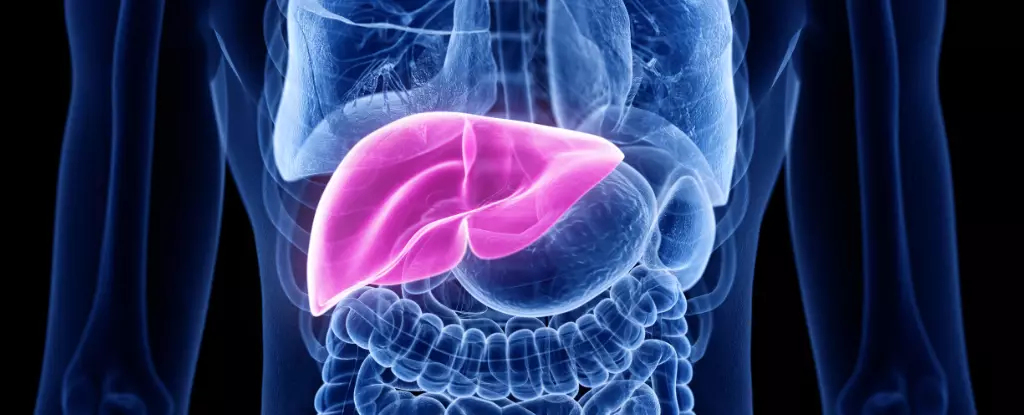In a remarkable advancement in the field of oncology, a 32-year-old woman from Manchester named Bianca Perea has become the first individual in the United Kingdom to receive a liver transplant aimed at treating advanced bowel cancer. This medical milestone is indicative of a shift in treatment paradigms for advanced cancer cases that traditionally offer limited therapeutic options. Diagnosed with stage 4 bowel cancer in November 2021, and facing the grim reality of the disease having invaded all eight segments of her liver, Perea’s life took a hopeful turn following effective rounds of chemotherapy. While her response to treatment demonstrated considerable promise, traces of cancer still lingered in her liver, necessitating a definitive solution through organ transplantation.
Bowel cancer, also referred to as colorectal cancer, stands as the fourth most prevalent cancer in the UK, accounting for approximately 11% of new cancer diagnoses. It remains particularly treacherous when diagnosed in advanced stages, often leading to metastasis in the liver, complicating treatment regimens. The traditional approach to managing bowel cancer includes surgical interventions to excise tumors, complemented by chemotherapy or radiotherapy. However, the complexity escalates markedly when cancer spreads to the liver, rendering conventional methods less effective.
The prognosis for patients like Perea can be dire, with many patients experiencing a recurrence of the disease despite aggressive treatment regimens. In instances where surgical excision of tumors is deemed risky or feasible, the treatment focus often transitions from seeking a cure to providing palliative care aimed at symptom management and life extension. In this context, the idea of a liver transplant presents a revolutionary alternative, potentially offering a new lease on life by eliminating cancerous tissue at its source.
Transplantation, while not universally applicable, can significantly change the treatment landscape for advanced bowel cancer patients. The comprehensive removal of the liver allows for the eradication of all malignant tissue, which is a distinct advantage in combating widespread cancer. Preliminary research posits that the immune response initiated by the transplanted organ may play a role in targeting residual cancer cells that remain in the patient’s body, although the biological mechanisms behind this phenomenon are still under investigation.
In Perea’s case, success can be attributed to a combination of targeted therapies, chemotherapy, and surgical procedures that preceded the transplant. Continuous monitoring will be essential for her ongoing health, particularly to detect any signs of recurrence, as residual microscopic cancer cells can pose significant risks. Furthermore, Perea’s future will entail lifelong immunosuppression to avert transplant rejection, a necessary compromise that comes with organ transplantation.
Bianca Perea is not alone in her transformative experience; there exists a growing body of evidence highlighting the potential of liver transplantation to improve survival rates in patients battling advanced bowel cancer. Research from various global studies indicates significantly better five-year survival outcomes for patients who have undergone a liver transplant compared to those who have relied solely on standard treatments. For instance, findings from Norway suggest a survival range of 60% to 83% post-transplant, while a US study claimed a remarkable 91% survival rate after three years.
These statistics emphasize the necessity of employing a multifaceted approach to bowel cancer treatment, incorporating various anti-cancer therapies in tandem with transplantation. However, it is critical to recognize that not all patients will qualify for this innovative treatment, with estimates suggesting that only around 2% of those with metastatic bowel cancer to the liver may be suitable candidates. The implementation of stringent selection criteria will be pivotal in maximizing transplant success.
As exciting as this development is, further research is crucial to validate liver transplantation as a standard treatment modality for advanced bowel cancer. Additional studies are required to understand long-term survival rates and the quality of life implications for transplant recipients. Moreover, ethical considerations surrounding organ donation must be at the forefront of discussions, especially given the finite supply of donor organs and the need to prioritize treatment for varying types of patients in need.
While the overall five-year survival rate for all stages of bowel cancer hovers around 50% in the UK, continued exploration of innovative treatment options—such as liver transplantation—offers fresh hope. The case of Bianca Perea signals a pivotal point in cancer care, potentially laying the groundwork for broader acceptance and application of similar strategies in the future. As researchers delve deeper into this promising avenue, it is hoped that Perea’s journey and the knowledge gleaned from it can catalyze a future where advanced bowel cancer patients possess more successful treatment options.

